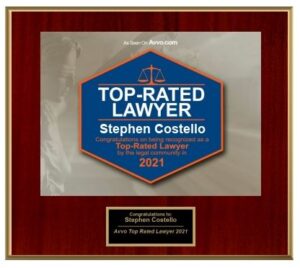Chapter 7 of the Title 11 of the United States Code (Bankruptcy Code) governs the process of liquidation under the bankruptcy laws of the United States. (In contrast, Chapters 11 and 13 govern the process of reorganization of a debtor in bankruptcy.) Chapter 7 is the most common form of bankruptcy in the United States.
For businesses
When a troubled business is badly in debt and unable to service that debt or pay its creditors, it may file (or be forced by its creditors to file) for bankruptcy in a federal court under Chapter 7. A Chapter 7 filing means that the business ceases operations unless continued by the Chapter 7 Trustee. A Chapter 7 Trustee is appointed almost immediately, with broad powers to examine the business’s financial affairs. The Trustee generally sells all the assets and distributes the proceeds to the creditors. This may or may not mean that all employees will lose their jobs. When a very large company enters Chapter 7 bankruptcy, entire divisions of the company may be sold intact to other companies during the liquidation.
Fully secured creditors, such as collateralized bondholders or mortgage lenders, have a legally enforceable right to the collateral securing their loans or to the equivalent value, a right which cannot be defeated by bankruptcy. A creditor is fully secured if the value of the collateral for its loan to the debtor equals or exceeds the amount of the debt. For this reason, however, fully secured creditors are not entitled to participate in any distribution of liquidated assets that the bankruptcy trustee might make.
In a Chapter 7 case, a corporation or partnership does not receive a bankruptcy discharge—instead, the entity is dissolved. Only an individual can receive a Chapter 7 discharge (see 11 U.S.C. § 727(a)(1)). Once all assets of the corporate or partnership debtor have been fully administered, the case is closed. The debts of the corporation or partnership theoretically continue to exist until applicable statutory periods of limitations expire.
For individuals
Individuals who reside, have a place of business, or own property in the United States may file for bankruptcy in a federal court under Chapter 7 (“straight bankruptcy”, or liquidation). Chapter 7, as with other bankruptcy chapters, is not available to individuals who have had bankruptcy cases dismissed within the prior 180 days under specified circumstances.
In a Chapter 7 bankruptcy, the individual is allowed to keep certain exempt property. Most liens, however (such as real estate mortgages and security interests for car loans), survive. The value of property that can be claimed as exempt varies from state to state. Other assets, if any, are sold (liquidated) by the interim trustee to repay creditors. Many types of unsecured debt are legally discharged by the bankruptcy proceeding, but there are various types of debt that are not discharged in a Chapter 7. Common exceptions to discharge include child support, income taxes less than 3 years old and property taxes, student loans (unless the debtor prevails in a difficult-to-win adversary proceeding brought to determine the dischargeability of the student loan), and fines and restitution imposed by a court for any crimes committed by the debtor. Spousal support is likewise not covered by a bankruptcy filing nor are property settlements through divorce. Despite their potential non-dischargeability, all debts must be listed on bankruptcy schedules.
A chapter 7 bankruptcy stays on an individual’s credit report for 10 years from the date of filing the chapter 7 petition. This contrasts with a chapter 13 bankruptcy, which stays on an individual’s credit report for 7 years from the date of filing the chapter 13 petition. This may make credit less available and/or terms less favorable, although high debt can have the same effect. That must be balanced against the removal of actual debt from the filer’s record by the bankruptcy, which tends to improve creditworthiness. Consumer credit and creditworthiness is a complex subject, however. Future ability to obtain credit is dependent on multiple factors and difficult to predict.
Another aspect to consider is whether the debtor can avoid a challenge by the United States Trustee to his or her Chapter 7 filing as abusive. One factor in considering whether the U.S. Trustee can prevail in a challenge to the debtor’s Chapter 7 filing is whether the debtor can otherwise afford to repay some or all of his debts out of disposable income in the five year time frame provided by Chapter 13. If so, then the U.S. Trustee may succeed in preventing the debtor from receiving a discharge under Chapter 7, effectively forcing the debtor into Chapter 13.
It is widely held amongst bankruptcy practitioners that the U.S. Trustee has become much more aggressive in recent times in pursuing (what the U.S. Trustee believes to be) abusive Chapter 7 filings. Through these activities the U.S. Trustee has achieved a regulatory system that Congress and most creditor-friendly commentors have consistently espoused, i.e., a formal means test for Chapter 7. The Bankruptcy Abuse Prevention and Consumer Protection Act of 2005 has clarified this area of concern by making changes to the U.S. Bankruptcy Code that include, along with many other reforms, language imposing a means test for Chapter 7 cases.
Creditworthiness and the likelihood of receiving a Chapter 7 discharge are only a few of many issues to be considered in determining whether to file bankruptcy. The importance of the effects of bankruptcy on creditworthiness is sometimes overemphasized because by the time most debtors are ready to file for bankruptcy their credit score is already ruined. Also, new credit extended post-petition is not covered by the discharge, so creditors may offer new credit to the newly-bankrupt.





